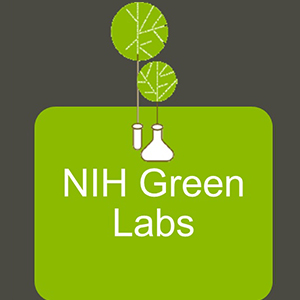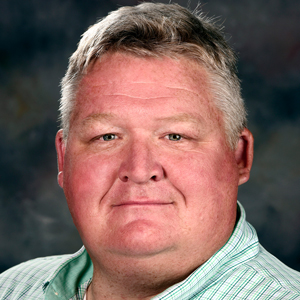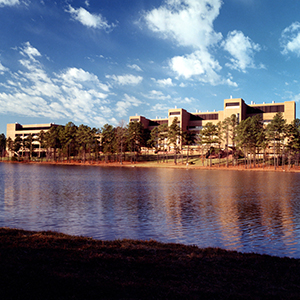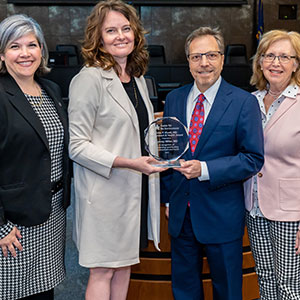Chris Long, NIEHS Associate Director for Management and Executive Officer, retired in August, following 36 years in public service. His career launched at the U.S. Environmental Protection Agency (EPA), and then he worked almost 14 years at the institute.
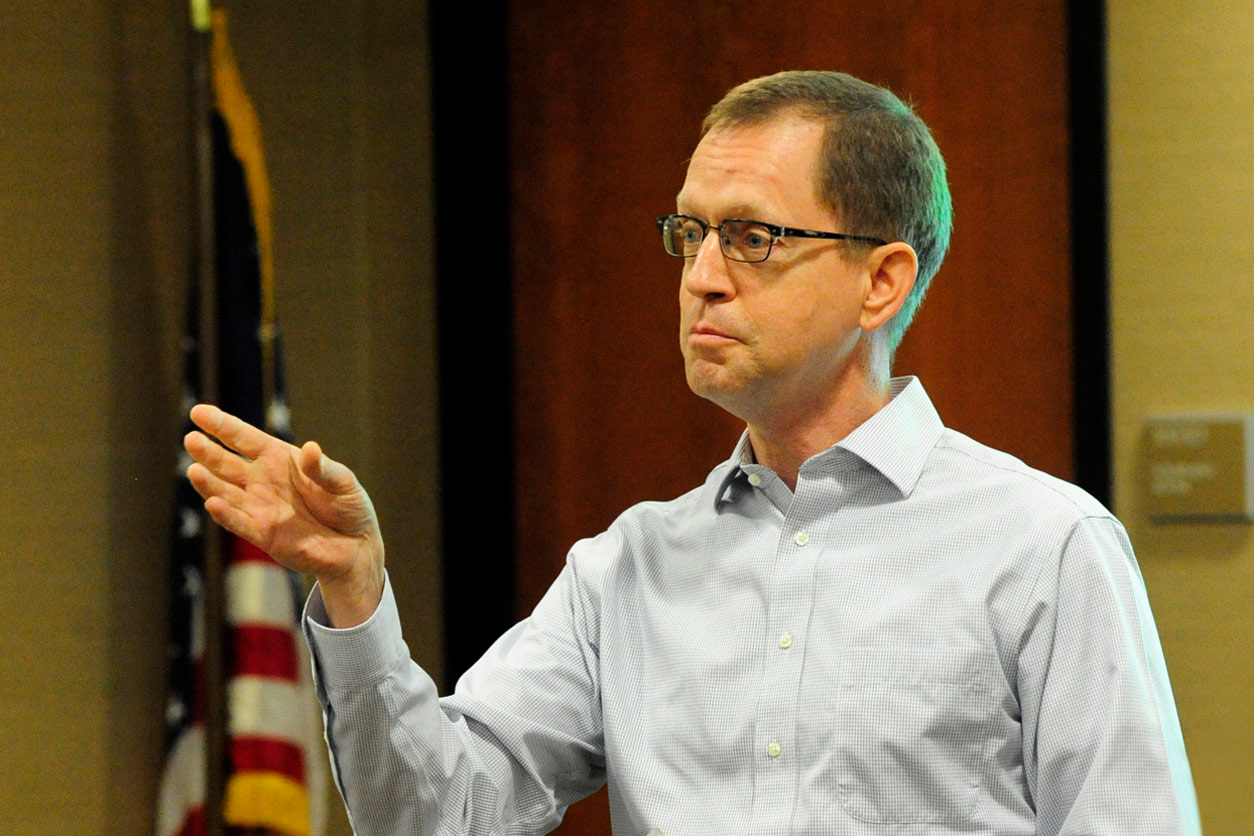 Long is seen here speaking at an employee appreciation event in 2016. (Photo courtesy of Steve McCaw / NIEHS)
Long is seen here speaking at an employee appreciation event in 2016. (Photo courtesy of Steve McCaw / NIEHS)The NIEHS community said goodbye to Long during an Aug. 18 retirement party at which institute leaders and colleagues shared fond memories and funny stories.
“Chris has been a rock star federal employee,” said NIEHS and National Toxicology Program Director Rick Woychik, Ph.D. “He has been an invaluable member of the institute’s leadership team, and as a non-scientist, Chris brought an important and insightful perspective to our discussions and decision-making,” he added.
“I personally benefited from his counsel both during my time as Deputy Director and now as Director, and the entire institute benefited from the wisdom he brought to the job,” said Woychik. “Chris was completely dedicated to the NIEHS mission. We will miss him, and we wish him the very best in retirement.”
Environmental Factor recently spoke with Long to learn about his career reflections, his proudest achievements at NIEHS, and his retirement plans (see sidebar).
Advancing safety, environmental sustainability
Environmental Factor: During your time leading the institute’s Office of Management, you spearheaded initiatives in key areas ranging from environmental sustainability to the NIEHS COVID-19 response. What are some of your proudest achievements?
Chris Long: I first want to say that I've accomplished nothing by myself. We've got some outstanding folks here at NIEHS, and it’s not just the people but also the way we work together.
I think what I’m most proud of is helping to advance health, safety, and sustainability. Not only among staff but also with our facilities. A recent example is our receipt of the International WELL Building Institute’s Health-Safety Rating, which signaled our commitment to enhancing stewardship in areas such as air and water management, and emergency preparedness. We were the first U.S. federal agency to receive the WELL seal of approval.
We also were the first NIH [National Institutes of Health] institute to produce a sustainability report, which highlighted our continued efforts to reduce energy consumption, conserve natural resources on our campus, properly handle hazardous waste, and so forth. Another major project was the construction of our net-zero energy warehouse, which is the first ever building built by the Department of Health and Human Services that makes more energy than it uses every year.
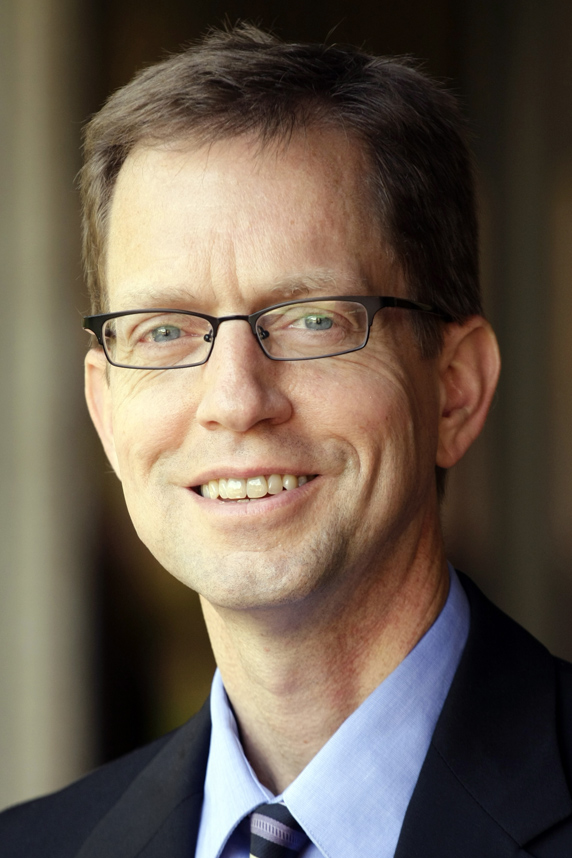 During his time at EPA, Long oversaw design and construction of the agency’s Research Triangle Park campus, located across from NIEHS. His focus on sustainability led to international acclaim when the campus opened in 2001. (Photo courtesy of Steve McCaw / NIEHS)
During his time at EPA, Long oversaw design and construction of the agency’s Research Triangle Park campus, located across from NIEHS. His focus on sustainability led to international acclaim when the campus opened in 2001. (Photo courtesy of Steve McCaw / NIEHS)I trust that I will leave my responsibilities in the right hands, as I tried to prioritize recruiting the best people, keeping the best people, assisting in training and support, and allowing individuals to progress in their careers. I’m very proud of the diversity and inclusion that I see in the Office of Management and the mentorship efforts that we have set up. My heart always has been in this kind of work.
COVID-19 response
EF: Can you talk about the unprecedented efforts by you and others at NIEHS to respond to the COVID-19 pandemic and ensure employee safety?
CL: It was an overwhelming challenge. We used a collaborative approach, including partnering with NIEHS Deputy Executive Officer Mitch Williams, the institute’s Health and Safety Branch, and many others, all of whom played a huge role in helping to manage our response to COVID-19.
We set up a testing program on site and a vaccine clinic, which was a challenge being in North Carolina, far from the other NIH institutes in Bethesda, Maryland, where some key resources were more readily available. We showed what you can do when everyone commits to work together and tackle something so complex.
Beyond the logistics of those efforts, I think we learned how to check-in on one another and ask how everyone is feeling and how their families are doing. We all knew this was a stressful time, and I think the experience showed how our community treats each other with compassion.
One thing we learned from COVID-19 is we really can slow down from moments in our day and focus on each other as human beings to make sure that our colleagues are okay. I think that helps us be better in every way, personally and professionally.
Public service viewed as privilege
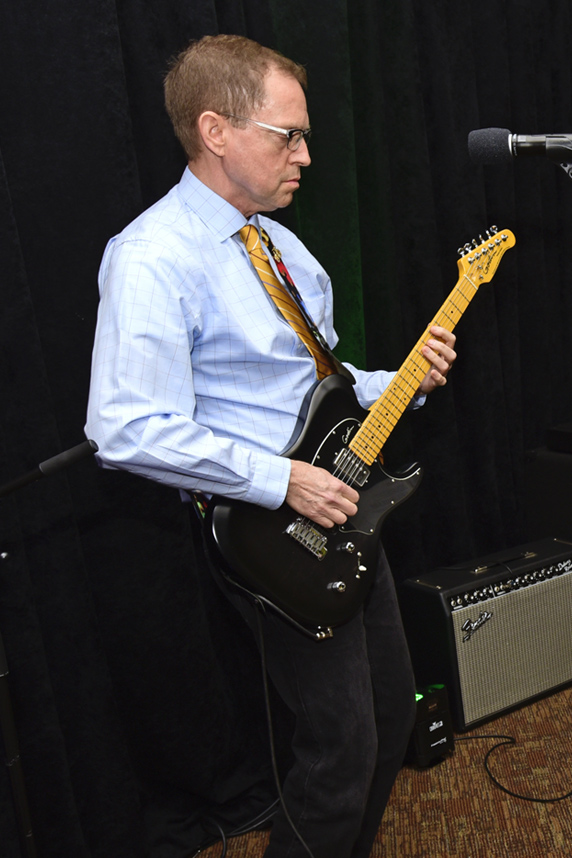 Long, shown playing guitar during the 2019 retirement party for former NIEHS and National Toxicology Program Director Linda Birnbaum, Ph.D., is an avid musician who performs in local bands. (Photo courtesy of Steve McCaw / NIEHS)
Long, shown playing guitar during the 2019 retirement party for former NIEHS and National Toxicology Program Director Linda Birnbaum, Ph.D., is an avid musician who performs in local bands. (Photo courtesy of Steve McCaw / NIEHS)EF: How has it been being so involved in the scientific community while being a non-scientist?
CL: I’ve been in a non-scientific job for two scientific agencies for 36 years. I loved EPA, and I have loved NIEHS. Every day, I appreciate that I am among brilliant and talented people who are committed to what they do, and I’m so lucky for that.
Being a non-scientist working to support such a major research enterprise is also cool because I know how important the work is, and I want to help move it forward. I know how to do things as an administrator, and scientists can just rely on me for that and focus more on their side of things, so that's been a privilege as well, to serve the research community.
Going forward, I believe NIEHS is going to lead research on climate and health, which might be the most important work we ever do. We’re going to play a leadership role in getting others across NIH and the government focused on climate-related issues. I also believe that NIEHS can be the first NIH institute to be carbon neutral and 100% powered by renewable energy.
In my view, public service is a privilege. At NIEHS, we’re working for society, we’re working for the world. So, if we succeed, then everyone benefits. If environmental health science advances, then people could be much healthier in the future. There is a lot at stake, and I’m proud that I was able to contribute to those broader efforts during my career.
(Caroline Malarkey was a 2021 summer intern in the NIEHS Office of Communications and Public Liaison.)






